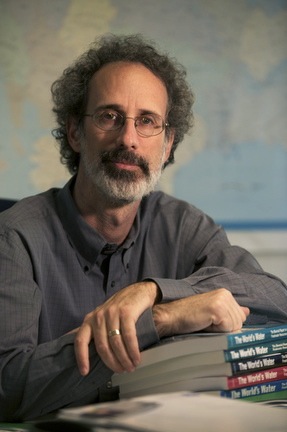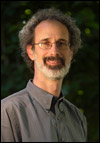Peter Gleick: Climate Change and the Integrity of Science Redux
Nearly two years ago, Science magazine published the following Lead Letter, signed by 255 members of the U.S. National Academy of Sciences addressing attacks on the integrity of climate science. The science has continued to strengthen, the evidence in real world observations has become even stronger and more obvious.
In response, in the past few months, there has been a last-gasp effort (see, for example, here and here) on the part of the ever-shrinking group of hard-core climate deniers to confuse the public and especially our elected officials. Given this continuing profusion of false and misleading information, and given the growing debate about climate policy and whether to pursue projects such as the Keystone XL pipeline, I repost the Letter here.
—
Climate Change and the Integrity of Science
(Science Magazine, May 7, 2010)
We are deeply disturbed by the recent escalation of political assaults on scientists in general and on climate scientists in particular. All citizens should understand some basic scientific facts. There is always some uncertainty associated with scientific conclusions; science never absolutely “proves” anything. When someone says that society should wait until scientists are absolutely “certain” before taking any action, it is the same as saying society “should never take action.” For a problem as potentially catastrophic as climate change, taking no action poses a dangerous risk for our planet.
Scientific conclusions derive from an understanding of basic laws supported by laboratory experiments, observations of nature, and mathematical and computer modeling. Like all human beings, scientists make mistakes, but the scientific process is designed to find and correct them. This process is inherently adversarial – scientists build reputations and gain recognition not only for supporting conventional wisdom, but even more so for demonstrating that the scientific consensus is wrong and that there is a better explanation. That’s what Galileo, Pasteur, Darwin, and Einstein did. But when some conclusions have been thoroughly and deeply tested, questioned, and examined, they gain the status of “well-established theories” and are often spoken of as “facts.”
For instance, there is compelling scientific evidence that our planet is about 4.5 billion years old (the theory of the origin of Earth), that our universe was born from a single event about 14 billion years ago (the Big Bang theory), and that today’s organisms evolved from ones living in the past (the theory of evolution). Even as these are overwhelmingly accepted by the scientific community, fame still awaits anyone who could show these theories to be wrong. Climate change now falls into this category: there is compelling, comprehensive, and consistent objective evidence that humans are changing the climate in ways that threaten our societies and the ecosystems on which we depend.
Many recent assaults on climate science and, more disturbingly, on climate scientists by climate change deniers, are typically driven by special interests or dogma, not by an honest effort to provide an alternative theory that credibly satisfies the evidence. The Intergovernmental Panel on Climate Change (IPCC) and other scientific assessments of climate change, which involve thousands of scientists producing massive and comprehensive reports, have, quite expectedly and normally, made some mistakes. When errors are pointed out, they are corrected. But there is nothing remotely identified in the recent events that changes the fundamental conclusions about climate change:
1. The planet is warming due to increased concentrations of heat-trapping gases in our atmosphere. A snowy winter in Washington does not alter this fact.
2. Most of the increase in the concentration of these gases over the last century is due to human activities, especially the burning of fossil fuels and deforestation.
3. Natural causes always play a role in changing Earth’s climate, but are now being overwhelmed by human-induced changes.
4. Warming the planet will cause many other climatic patterns to change at speeds unprecedented in modern times, including increasing rates of sea-level rise and alterations in the hydrologic cycle. Rising concentrations of carbon dioxide are making the oceans more acidic.
5. The combination of these complex climate changes threaten coastal communities and cities, our food and water supplies, marine and freshwater ecosystems, forests, high mountain environments, and far more.
Much more can be, and has been, said by the world’s scientific societies, national academies, and individuals, but these conclusions should be enough to indicate why scientists are concerned about what future generations will face from business-as-usual practices. We urge our policymakers and the public to move forward immediately to address the causes of climate change, including the unrestrained burning of fossil fuels.
We also call for an end to McCarthy-like threats of criminal prosecution against our colleagues based on innuendo and guilt by association, the harassment of scientists by politicians seeking distractions to avoid taking action, and the outright lies being spread about them. Society has two choices: we can ignore the science and hide our heads in the sand and hope we are lucky, or we can act in the public interest to reduce the threat of global climate change quickly and substantively. The good news is that smart and effective actions are possible. But delay must not be an option.
Signed
[255 members of the U.S. National Academy of Sciences]
[The signers are all members of the U.S. National Academy of Science, but are not speaking on its behalf. Names are in alphabetical order, except for Dr. Peter Gleick, the corresponding author.]
Gleick, Peter H (corresponding author)
Adams, Robert McCormick
Amasino, Richard M
Anders, Edward
Anderson, David J
Anderson, Wyatt W
Anselin, Luc E
Arroyo, Mary Kalin
Asfaw, Berhane
Ayala, Francisco J
Bax, Adriaan
Bebbington, Anthony J
Bell, Gordon
Bennett, Michael V L
Bennetzen, Jeffrey L
Berenbaum, May R
Berlin, Overton Brent
Bjorkman, Pamela J
Blackburn, Elizabeth
Blamont, Jacques E
Botchan, Michael R
Boyer, John S
Boyle, Ed A
Branton, Daniel
Briggs, Steven P
Briggs, Winslow R
Brill, Winston J
Britten, Roy J
Broecker, Wallace S
Brown, James H
Brown, Patrick O
Brunger, Axel T
Cairns, Jr John
Canfield, Donald E
Carpenter, Stephen R
Carrington, James C
Cashmore, Anthony R
Castilla, Juan Carlos
Cazenave, Anny
Chapin, III F, Stuart
Ciechanover, Aaron J
Clapham, David E
Clark, William C
Clayton, Robert N
Coe, Michael D
Conwell, Esther M
Cowling, Ellis B
Cowling, Richard M
Cox, Charles S
Croteau, Rodney B
Crothers, Donald M
Crutzen, Paul J
Daily, Gretchen C
Dalrymple, Brent G
Dangl, Jeffrey L
Darst, Seth A
Davies, David R
Davis, Margaret B
De Camilli, Pietro V
Dean, Caroline
DeFries, Ruth S
Deisenhofer, Johann
Delmer, Deborah P
DeLong, Edward F
DeRosier, David J
Diener, Theodor O
Dirzo, Rodolfo
Dixon, Jack E
Donoghue, Michael
Doolittle, Russell F
Dunne, Thomas
Ehrlich, Paul R
Eisenstadt, Shmuel N
Eisner, Thomas
Emanuel, Kerry A
Englander, Walter S
Ernst, W, G
Falkowski, Paul G
Feher, George
Ferejohn, John A
Fersht, Sir Alan
Fischer, Edmond H
Fischer, Robert
Flannery, Kent V
Frank, Joachim
Frey, Perry A
Fridovich, Irwin
Frieden, Carl
Futuyma, Douglas J
Gardner, Wilford R
Garrett, Christopher J R
Gilbert, Walter
Gleick, Peter H
Goldberg, Robert B
Goodenough, Ward H
Goodman, Corey S
Goodman, Morris
Greengard, Paul
Hake, Sarah
Hammel, Gene
Hanson, Susan
Harrison, Stephen C
Hart, Stanley R
Hartl, Daniel L
Haselkorn, Robert
Hawkes, Kristen
Hayes, John M
Hille, Bertil
Hökfelt, Tomas
House, James S
Hout, Michael
Hunten, Donald M
Izquierdo, Ivan A
Jagendorf, André T
Janzen, Daniel H
Jeanloz, Raymond
Jencks, Christopher S
Jury, William A
Kaback, H Ronald
Kailath, Thomas
Kay, Paul
Kay, Steve A
Kennedy, Donald
Kerr, Allen
Kessler, Ronald C
Khush, Gurdev S
Kieffer, Susan W
Kirch, Patrick V
Kirk, Kent C
Kivelson, Margaret G
Klinman, Judith P
Klug, Sir Aaron
Knopoff, Leon
Kornberg, Sir Hans
Kutzbach, John E
Lagarias, J Clark
Lambeck, Kurt
Landy, Arthur
Langmuir, Charles H
Larkins, Brian A
Le Pichon, Xavier T
Lenski, Richard E
Leopold, Estella B
Levin, Simon A
Levitt, Michael
Likens, Gene E
Lippincott-Schwartz
Lorand, Laszlo
Lovejoy, Owen C
Lynch, Michael
Mabogunje, Akin L
Malone, Thomas F
Manabe, Syukuro
Marcus, Joyce
Massey, Douglas S
McWilliams, Jim C
Medina, Ernesto
Melosh, Jay H
Meltzer, David J
Michener, Charles D
Miles, Edward L,
Mooney, Harold A
Moore, Peter B
Morel, Francois M M
Mosley-Thompson
Moss, Bernard
Munk, Walter H
Myers, Norman
Nair, Balakrish G
Nathans, Jeremy
Nester, Eugene W
Nicoll, Roger A
Novick, Richard P
O’Connell, James F
Olsen, Paul E
Opdyke, Neil D
Oster, George F
Ostrom, Elinor
Pace, Norman R
Paine, Robert T
Palmiter, Richard D
Pedlosky, Joseph
Petsko, Gregory A
Pettengill, Gordon H
Philander, George S
Piperno, Dolores R
Pollard, Thomas D
Price Jr. Buford P
Reichard, Peter A
Reskin, Barbara F
Ricklefs, Robert E
Rivest, Ronald L
Roberts, John D
Romney, Kimball A
Rossmann, Michael G
Russell, David W
Rutter, William J
Sabloff, Jeremy A
Sagdeev, Roald Z
Sahlins, Marshall D
Salmond, Anne
Sanes, Joshua R
Schekman, Randy
Schellnhuber, John
Schindler, David W
Schmitt, Johanna
Schneider, Stephen H
Schramm, Vern L
Sederoff Ronald R
Shatz, Carla J
Sherman, Fred
Sidman, Richard L
Sieh, Kerry, Nanyang
Simons, Elwyn L
Singer, Burton H
Singer, Maxine F
Skyrms, Brian
Sleep, Norman H
Smith, Bruce D
Snyder, Solomon H,
Sokal, Robert R
Spencer, Charles S
Steitz, Thomas A
Strier, Karen B
Südhof, Thomas C
Taylor, Susan S
Terborgh, John
Thomas, David Hurst
Thompson, Lonnie G
Tjian, Robert T
Turner, Monica G
Uyeda, Seiya
Valentine, James W
Valentine, Joan Selverstone
Van Etten, James L
Van Holde, Kensal E
Vaughan, Martha
Verba Sidney
Von Hippel, Peter H
Wake, David B
Walker, Alan
Walker John E
Watson, Bruce E
Watson, Patty Jo
Weigel, Detlef
Wessler, Susan R
West-Eberhard, Mary Jane
White, Tim D
Wilson, William Julius
Wolfenden, Richard V
Wood, John A
Woodwell, George M
Wright, Jr Herbert E
Wu, Carl
Wunsch, Car
Zoback, Mary Lou






But why would a dollar of steel or a widget made in the U.S. require less in the way of natural resources? In part it is because, as woeful as U.S. infrastructure may seem, new production there will require little of the sort of massive emerging market projects we’ve become used to, and which have driven demand for steel, oil and much else.